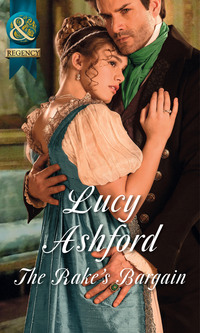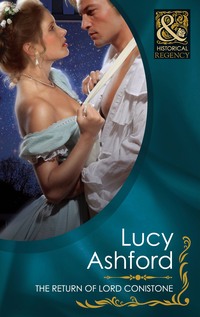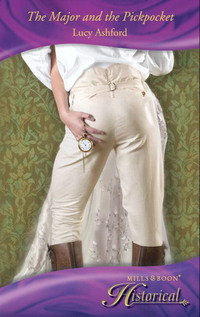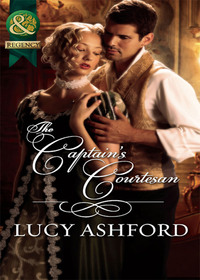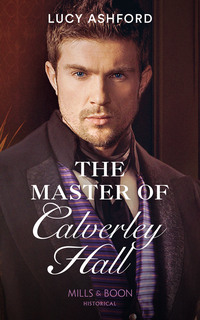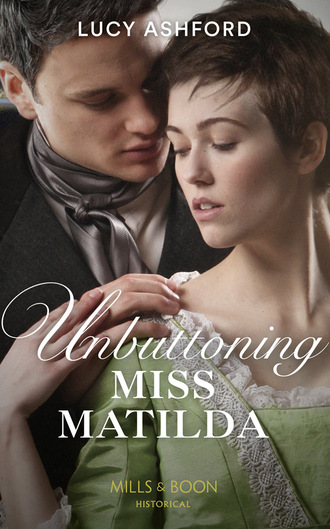
Полная версия
Unbuttoning Miss Matilda
For the last two years, she’d earned occasional money by carrying light loads on her boat for short distances only, taking on parcels of fabric or chinaware or other delicate goods. Hercules might be old, but he was also well trained—he knew exactly how to plod calmly along the towpath without starting at a flock of ducks or shying at an oncoming barge, while Matty, manning the tiller, dreamed of travelling farther some day and finding the lost treasure her father thought he was close to discovering only days before he died.
‘You’re one of us, young Matty,’ the canal folk were always telling her. ‘You always will be, lass.’
But Matty knew that in reality she was alone, cast adrift somewhere between the world of the Oxford scholars and the community of canal people, yet belonging to neither. She also knew this way of life couldn’t carry on for much longer without a regular income and some day soon—by the autumn, most likely—she would have to sell The Wild Rose. Already the sharp tang of loss was making her cold. She’d told Bess she had a plan—if only she did.
Slowly she went to fetch a tin cash box from under the bed and unlocked it. The money won’t have magically multiplied since you last looked, you fool.
Inside were some things she’d carefully kept over the years—three bronze Celtic brooches, an Iron-Age amulet and two small silver candleholders, Tudor most likely. And, wrapped in a soft piece of cloth, there was a golden coin. A Roman coin.
Holding the coin up to the light, she thought she would never, ever forget the reverence in her father’s eyes as he’d brushed the dirt from it two years ago. ‘Where there’s one coin like this, Matty,’ he’d said, ‘there’ll be more.’
The Roman coin she would never, ever part with. But perhaps she could sell the Celtic brooches to a collector, then maybe have enough for all the extra expenses involved in journeying to find her father’s treasure, though there was yet another problem. It would take three days at least to get to the site where her father had found the coin and for that length of journey she needed someone to help with the boat. But since there were no women for hire on the canals, that someone would have to be a man—and her heart sank at the thought. Sighing a little, she carefully slipped the coin, the brooches and other treasures into a purse, then climbed back up on deck.
‘Matty, lass!’
It was Bess again on the wharfside, waving a sheet of paper. ‘Look,’ Bess was saying, ‘someone’s just handed me this letter. And bless me, I can’t make head or tail of it.’
‘A letter? Let me see.’ Matty scanned it quickly. ‘Bess, it’s from the corn merchant in Brentford. He’s offering you a new contract, for a whole year!’
‘Really?’ Her friend gave a whoop of joy. ‘Wait till I tell my Daniel! And he pays well, really well. How about coming to dine with us tonight, girl? This deserves a celebration!’
‘I’d love to.’ Matty really meant it. ‘But, Bess, I’ve an errand to make first. I’ve decided I need to sell a few of my father’s things—some old trinkets he gave me—so you see, I might have to head into town.’
‘Lass, if you’re in money trouble, maybe me and Daniel can help...’
‘No! Bess, I wouldn’t dream of it. And I might not even sell them, but I would like some idea of their value.’
‘Well, instead of tramping into town and back, why don’t you call at that place just up the lane there?’
‘Which place do you mean?’
‘There’s a sign over it that says “Mr Percival’s Antiques”. Now, it all seems a bit rundown, but we’ve seen the young fellow who runs it and my Daniel reckons he looks a clever one all right. Why not try him?’
It was indeed a long walk to the antiques dealers in the centre of London. ‘I might just do that,’ Matty said thoughtfully.
‘Just make sure, though, that Mr Percival doesn’t swindle you. And you’ll come to us later on for your supper, won’t you? Then...’ Bess hesitated ‘...maybe we can have a little chat. You see, we’ve been thinking, me and Daniel, that maybe you should stop this travelling about on your own. You’ve got an education, and this just isn’t the life for a girl like you.’
Matty faced her steadfastly. ‘But this is the only life I know. The only life I want, Bess, truly—’
It was with a sense of relief that Matty realised two of Bess’s children were running towards their mother, one of them carrying a kitten. ‘Mama! Mama! Look what Joe the coalman gave us for looking after his horse for him! The kitten’s called Sukey and she’ll be as good as gold, Joe says. Can we keep her, Mama? Please, can we?’
And so Matty was able to escape Bess’s forthcoming lecture and seek the solitude of her own cabin again.
But she didn’t really feel any better for it at all.
Bess was probably right to say this was no life for a girl like her. But how could Matty abandon it, when she’d known no life other than this, ever?
She’d not expected her father to die so suddenly. Even now a fresh wave of sadness hovered close, but there was no time for grief or any other indulgence of emotions. Her father had taught her everything she needed to know to survive on the waterways—and survive she would. She would not sell her father’s boat, she would not sell Hercules. And she would never, ever abandon her father’s final dream.
Chapter Three
It didn’t take Matty long to find her way to Mr Percival’s Antiques. Just as Bess had described, the sign was swinging lightly in the breeze; but her heart sank as she drew close.
She’d realised, of course, that Mr Percival was unlikely to resemble the antique experts her father had loved to visit in Oxford, but neither had she expected his premises to have such a general air of dereliction. Squashed in between a furniture maker’s and a bakery, it would in fact have escaped her notice altogether were it not for that faded sign. And as she drew closer to the grimy window, she could see a variety of junk—yes, that was the word, junk—littering every available surface inside.
Should she even bother? Yet her father used to tell her appearances could be deceptive. ‘You never can tell,’ he would say.
She could only hope so.
Since the door was already ajar, she pulled her hat down more firmly, pushed the door open farther, and squeezed her way in past racks of old brass pots and pans that clanked together as she brushed by. Inside, a single oil lamp cast its dim light over shelves that were full of dusty books and ornaments. On the walls were paintings, most of them hung crookedly. As for the counter, she couldn’t even see it thanks to a clothes rail full of old coats; but the sound of raised voices was hard to ignore.
‘You let go of my son Tommy’s jacket, do you hear?’ a woman was squawking. ‘You great brute of a thing. Why, Tommy’s not a quarter your size!’
‘Then,’ came a man’s calm voice, ‘your son should know better—madam—than to come in here and steal my goods.’
‘He wasn’t stealing, my Tommy wasn’t. He was just looking!’
‘Oh, was he?’ The man sounded interested. ‘A peculiar way of looking, to stuff those various items rather deep in those pockets of his, wouldn’t you say?’
Matty could see that the man who held a small, squirming lad by his collar was tall and dark-haired, maybe in his midtwenties. And she recognised him. He was the man who’d admired Hercules down by the wharf and he spoke in that calm, surprisingly educated voice that had so startled her earlier.
The woman was far from calm. ‘You leave my Tommy alone, you villain, or I’ll call the constables!’
‘You do that,’ the man agreed. ‘Save me the trouble.’ The woman hesitated. Meanwhile the man went on, ‘Tell your angelic little son to empty his pockets, will you?’
Just for a moment Matty wondered if the woman might try landing a punch on the man’s stubble-darkened jaw. Most unwise, Matty decided as she assessed the breadth of his shoulders beneath his coat. All in all his shabby attire concealed, she guessed, some rather powerful muscles—and clearly the woman thought the same, because she said, ‘All right, then, our Tommy. Clear out your pockets, you young fool.’
Tommy scowled, but out came the goods—a pewter snuffbox, a brass signet ring and a silver-plated spoon. Tommy handed them over sullenly, one by one.
‘Right,’ said the man. ‘Now clear off, the pair of you. And listen, young Tommy—’ he bent down close to the lad’s ear ‘—if I ever catch you in here again, you’ll get a wallop on the backside and that’s a promise. You hear me?’
Tommy’s mother, with one last baleful glance at the man, dragged her boy outside and began yelling. ‘Listen here, our Tommy. If I’ve told you once, I’ve told you a dozen times...’
As the sound of her voice faded at last into the distance Matty stepped forward, still careful to keep herself away from the light of that single lamp. She cleared her throat. ‘Mr Percival, I presume?’
He almost jumped. ‘Ah. Forgive me. Didn’t see you there.’ He’d been examining the spoon the lad had tried to pinch, rubbing it on his sleeve before putting it back on an already crowded shelf. Matty couldn’t see any order at all to what was already there—it seemed a higgledy-piggledy mess to her.
Then he turned to look at her full on and she felt her breath hitch a little. There was just something about him, something about his hard cheekbones and jutting jaw that gave her a physical shock after the almost lazy calmness of his voice. ‘I believe,’ he said, ‘that we’ve met before. Thank you for warning me about those barrels heading my way.’
She nodded briefly. ‘I had no wish to see you flattened.’
He laughed, but she was confused because she sensed that behind those amused blue eyes there lurked something rather dangerous. Though perhaps that was her imagination, because now he was sighing and saying to her almost sadly, ‘So. Welcome to my abode—though I don’t suppose that by any chance you’ve come to buy something, have you? Or perhaps—like young Tommy—you’re hoping to do a bit of pilfering?’
Matty felt an angry retort springing to her lips, but she answered him coolly, ‘That’s a rather careless assumption, Mr Percival.’
‘I’m sorry, but I’m afraid I find myself growing rather cynical these days. And as it happens, I’m not Mr Percival—Mr Percival is in fact somewhat elusive, except, alas, when his rent is due. My name is Jack Rutherford. And you, young sir, are here because...?’
He was trying to peer down at her but Matty, glad of her wide-brimmed hat and the general gloom in here, kept her distance. He assumed she was a boy. Let him. ‘I have some antique brooches I’d like valued, Mr Rutherford.’
‘Let me guess.’ He sighed again. ‘They’re worth a fortune, yes? They date back to Tudor times at the very least, but as a special favour you’ll let me have them for a guinea. Am I right?’
‘They’re not Tudor!’ Matty was stung out of her usual caution. ‘The brooches are Celtic, and—’
‘Now that’s original,’ he said, breaking in. ‘I’ll give you credit for that.’ He put his hands together and gestured applause. Well-shaped hands, Matty noticed. Elegant hands... Suddenly angry with herself for even noticing, she jerked her attention back to what he was saying.
‘But if these brooches of yours are genuine,’ he went on, ‘I’ll eat my hat. I do grow rather weary of fraudsters. And now, if you don’t mind, I’ll have to turn you away, because I have a rather urgent appointment elsewhere—’
Matty interrupted calmly, ‘You’re the one who’s a fraud.’
He looked rather startled. ‘I beg your pardon?’
‘You’re the fraud.’ Matty strolled over to point at one of the crowded shelves. ‘You’re selling overpriced rubbish. These vases you’ve labelled as early eighteenth-century Delftware are nothing of the sort—they were most likely made last year, not in Holland but in Stoke-on-Trent.’
She saw him looking rather bemused. ‘Stoke? Really? But how on earth do you—?’
‘Because I’ve had an education in antiques, which clearly you have not.’ She gestured towards another shelf. ‘Those bowls you’ve labelled as Chinese, from the Ming dynasty—they’ll have been made in a factory in east London. They’ll be two years old, not two hundred. And as for that piece of wood labelled “Egyptian Oar”—do you want to know what it really is?’ She indicated a six-foot length of wood leaning against the wall.
‘I’m not at all sure that I do.’
Matty told him anyway. ‘It’s an old barge pole. It’s probably been rotting in the Thames mud for the last twenty years or so.’
‘What a pity.’ He looked a little sad. ‘Though I thought the Egyptian bit was rather fanciful.’
Matty was growing exasperated. ‘I can see, Mr Rutherford, that my visit is clearly a waste of time.’ She was also realising it might be risky, too, because he suddenly appeared more interested in her than in what she was saying.
Normally strangers didn’t give Matty a second glance—they just assumed she was a lad and that was that. But Mr Jack Rutherford was looking at her a little too closely for her comfort and frowning, too. Swiftly she turned to go. But he called out, ‘Wait! Please.’
She swung round in spite of herself.
He said, ‘I don’t suppose by any chance you’re looking for a job, are you?’
She was astonished. ‘A job?’
‘Yes. As my assistant. You see, I only took over this place two months ago and I’ve been trying my best to label and price everything, but you’re absolutely right.’ He shrugged. ‘I don’t know nearly as much as I should.’
‘Then why on earth did you take the business on?’ She really couldn’t hide her scorn. ‘You’re clearly not making much of a success of it.’
‘I’m afraid it was just a stupid idea of mine. I’m rapidly coming to the conclusion that the place should be run by someone who might know rather more about antiques than I do.’
‘Finding someone of that description shouldn’t be difficult.’ She pointed to another table, laden with pistols and swords. ‘Though I imagine you don’t have any trouble selling these things? These mementoes from the war?’
A shadow had crossed his face. ‘No,’ he said in a quieter voice. ‘Actually, I don’t.’
‘Cheating old soldiers.’ Matty smiled up at him brightly from beneath the brim of her hat. ‘My goodness, you must be really proud of yourself.’
Something dangerous flashed through his blue eyes then and her heart skipped a beat. You fool, Matty. Deliberately antagonising a rogue like him. It was most definitely time to go.
She looked round to where the door beckoned temptingly. But then he smiled—and it was a smile that shook her badly, because there was something so very bitter about it. ‘Proud of myself?’ he echoed. ‘Just the opposite, in fact. And as for you—you really are rather bold, you know. For such a young...fellow.’
She felt her throat go suddenly dry at that momentary hesitation. Had he realised she was a girl?
So what if he had? she told herself quickly. What did it matter? Though she was unsettled, because she guessed this man knew an awful lot about women one way and another. For a moment his eyes arrowed into her, surveying her from the top of her head down to her toes, but she met his blue gaze and retorted, ‘So you think me bold because I happen to tell you you’re selling items that are wrongly labelled and wrongly priced? Surely you know that already?’
He’d come from behind his counter—to do what? Punish her for her cheek? Kidnap her? Don’t be stupid. But even so her heart hammered and her imagination whirled. Then—then he laughed. And there was something about the rich, sardonic timbre of his voice that was more dangerous than words.
‘Then help me,’ he stated calmly, ‘why don’t you? Get everything here priced and dated correctly and I’ll pay you a wage that’s pretty generous for a lad like you. How about it?’
So he hadn’t guessed her secret. Relief flooded her, but she shook her head decisively. ‘I think,’ she said, ‘that you should find yourself an occupation more suited to your talents.’
‘The trouble is, I’m not exactly sure what my talents are.’
‘How about smooth talking? Pulling the wool over people’s eyes?’ Oh, Matty. She silently groaned at her rashness. Stop talking so much, will you?
He was still smiling, but his blue eyes had narrowed again and she found that her blood was pounding rather hard. She needed to get out through that door right now but there was one slight problem. This man, nearly six foot of muscle and sinew, was still blocking her way.
Just when she was considering how best to make a run for it, she heard the sound of men’s raised voices from outside. ‘Here we are, lads,’ someone shouted. ‘Mr Percival’s Antiques—let’s give this one a go, shall we?’
And in marched four roughly dressed men. When Jack Rutherford turned in surprise, one of the new arrivals pulled out a nasty-looking knife. ‘Careful now,’ the man growled. Another of them pounced on Matty and pinned her hands behind her back. ‘Keep still, young ’un,’ he hissed in her ear, ‘or you’ll find yourself at the bottom of the canal.’
She kept very, very still and she saw that Jack Rutherford was motionless, too—he didn’t have much choice, with that man’s knife pointed at his neck.
‘Now, then,’ said the man with the knife, who was clearly their leader. ‘I didn’t realise Mr Percy’s place had a new owner. And you, my friend—’ he leered at Jack ‘—perhaps didn’t realise you owe us a fee for the privilege of running the place.’
‘A fee? What the hell for?’ Jack lunged forward, but two of the men grabbed his arms while the man with the knife waved his blade tauntingly. ‘That was a bit silly, wasn’t it? Now, listen. The money’s for your own safety—you pay us ten shillings a week and in return we protect you from thieves and robbers. Simple, right? All the businesses round here pay up ’cos they’re smart. So don’t you try playing silly games with us.’
Matty had already guessed what they were up to. Most of the London districts had gangs like this who frightened the business owners into paying them a regular fee—protection, they called it. But Jack Rutherford didn’t appear to quite understand.
‘You say that everyone pays you?’ Scorn etched his voice. ‘Not me, my friend. The hell not me.’
Even as he spoke, Jack lashed out to free himself, then lunged at the man with the knife and chopped at his arm so hard that the knife went flying. At exactly that moment, Matty kicked the man who held her and darted sideways to heave over a display case full of vases. It fell with an enormous crash, bringing the other ruffians to their knees under an onslaught of heavy pottery.
Next Matty picked up the barge pole—an Egyptian oar? I don’t think so, Mr Rutherford—and swung it against the legs of the man who was fighting with Jack. The man howled and fell to the floor. The others were getting to their feet, but Jack grabbed the pole off Matty. ‘Great idea,’ he said. ‘Thanks. Keep well clear.’ Then he swung the pole round with far more force than she could manage, catching the ribs, arms and knees of their attackers.
Soon all four were stumbling out through the door and limping off down the street. Matty heard their final words. ‘A madhouse in there,’ they were muttering as they glanced back. ‘A damned madhouse...’
Jack, who’d put the pole down, rubbed his hands together in satisfaction. ‘Well done,’ he said to Matty. ‘My thanks.’
She was assessing the wreckage of the room. ‘Mr Percival should have warned you.’
‘Warned me of what?’
‘That there’s a protection racket in this area. They’re dangerous.’
‘But this time they met rather more than they bargained for. Didn’t they?’ He grinned. ‘You and me together, youngster. What a team!’ He put his hand on her shoulder.
She pulled away quickly. By now he, too, was surveying the mess on the floor—he’d lost interest in her—but she was still unnerved, because when he’d touched her just now, she’d felt that touch ricochet all through her body. Matty spent her time avoiding men, not encouraging them. She didn’t even like anyone to come near her. But something about this man made her wonder what it might be like if he touched her again... Ridiculous.
He was shaking his head as he looked round the room. ‘I suppose,’ he was saying rather regretfully, ‘that I’d better start clearing up this mess.’
Matty shoved at the pieces of shattered pottery with her booted foot. ‘You could look on the bright side, Mr Rutherford.’ In control again, thank goodness. ‘At least you know now that your pottery wasn’t worth the shelf space you gave it.’
He put his hands on his hips and laughed outright. ‘You’ve certainly received quite an education from somewhere.’
‘I had an excellent tutor.’
‘And did this tutor of yours teach you how to fight, too?’
‘That? Oh, that comes naturally.’
Again he laughed, but this time she refused to allow herself to be distracted by his sparkling blue eyes or his merry grin; instead she straightened her hat and headed directly for the door. Come on, girl. Get out of here while you can.
‘Wait.’ His voice from behind stopped her in her tracks. ‘Wait,’ he repeated. ‘Those brooches you were telling me about. I would be quite interested in seeing them, you know.’
She almost gave a snort of disbelief. ‘Too late.’ Her hand was already on the door.
‘Very well. Though could it be—’ and his voice softly pursued her ‘—that your so-called treasures are fakes? Just as you say mine are?’
This was a challenge she couldn’t refuse, so she swung round and headed towards him once more, already extracting her silk purse from her pocket. ‘I don’t imagine,’ she said with a fresh edge to her voice, ‘that you’ve actually come across genuine objects like these. But here—’ and she laid them on the counter ‘—are two Celtic brooches.’
He whistled under his breath. ‘Even I can see these are quite something. So you weren’t joking when you told me they’re valuable?’
‘I don’t joke about matters that are important, Mr Rutherford.’ She gathered up the brooches to slip them in her purse again. ‘And I came here because I wanted an expert opinion on their value. A pity I came to the wrong person.’
‘You certainly did.’ He looked mildly regretful. ‘But what’s that?’
Because as she was putting away her brooches, the Roman coin fell from her purse. And before she could stop him, he’d picked it up and held it to the light. ‘It’s beautiful,’ he said quietly.
‘Yes.’ Her eyes never left the coin as it winked between his fingertips. ‘It dates back to the first century, when Tiberius was emperor of Rome. You can tell by the image—do you see?—which changed in the year of—’
‘Stop. Stop!’ He was almost laughing again. ‘How do you know all this?’
‘My father was a historian.’
‘And where did he find this coin?’
‘He dug it up in a field.’
‘Dug it up in a field? But—’
Just at that moment the door opened again and they both turned quickly. This time, though, it wasn’t ruffians, but two women with aprons over their plain brown gowns and merry smiles on their faces. And they weren’t smiling at her.
‘Jack,’ they called, ‘we need your help! Two days ago that thieving innkeeper down the road ordered five dozen of our pies and he’s not paid us for a single one! The horrid man takes no notice of us when we ask for our money, so will you close up for the day and come to sort him out for us? Please?’
It was only then that they noticed the shattered pottery lying on the floor. ‘What’s been happening in here?’ Then they saw Matty. ‘Who’s this?’
Jack nodded towards Matty and began, ‘Here we have a young scholar, who has certainly proved his worth—’
Only then he broke off and he was saying, ‘No. Please, wait,’ because Matty grabbed back the coin and was heading for the door.


